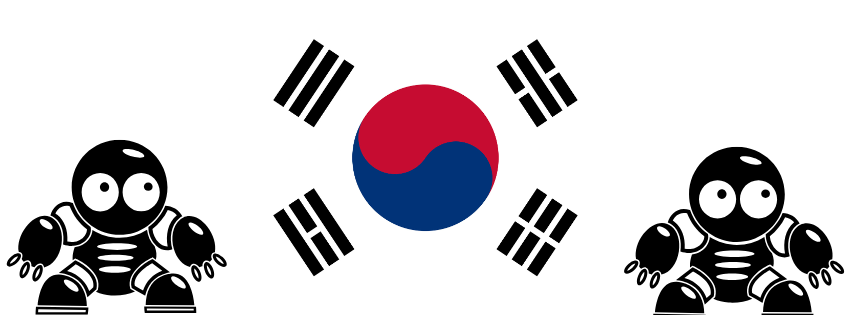South Korea has emerged as a global leader in Artificial Intelligence (AI) governance, setting a benchmark for how nations can balance rapid technological innovation with ethical responsibility. The country’s approach is characterized by a well-structured regulatory framework, forward-thinking policies, and a commitment to embedding ethical principles into the fabric of AI development. Unlike many nations that struggle to keep pace with technological advancements, South Korea has proactively shaped its AI ecosystem through a combination of planning, ethical guidelines, and legislative frameworks focusing on innovation and regulation. The National Strategy for Artificial Intelligence stands as a cornerstone of South Korea’s AI governance approach. The Ministry of Science and ICT introduced this plan in 2019 transforming the country’s AI scene. It outlined a goal for South Korea to become a world leader in AI innovation and use. It stresses the value of public good and national edge. The plan shows a future where AI boosts output, improves life quality, and places South Korea as a global AI force. This full view sets South Korea apart from other nations that often chase money gains at the cost of ethical thoughts.
South Korea’s adoption of National Guidelines for AI Ethics in 2020 is significant. These rules are some of the first big ethical frameworks to govern AI . The guidelines put people first. They focus on key ideas like respecting human dignity, keeping personal information safe, and making sure everyone’s included. They also stress the importance of stopping harm, boosting the public good, and fostering unity in AI growth. South Korea showed its commitment to make sure AI tech lines up with key human rights like dignity and privacy. The country kept up its momentum in 2021 by introducing the Strategy to Realize Trustworthy Artificial Intelligence. This plan expanded the ethical framework to create a more thorough governance model. The strategy rested on three main supports: technology, systems, and ethics. It stressed the need to develop reliable AI tech set up institutional structures to encourage responsible AI use, and include AI ethics training throughout the development process.
In 2022, a strong step was taken in form of adoption of the AI Ethics Framework Enhancement Project. Through this initiative, practical tools like the AI Ethics Self-Checklist and Guidelines for AI Ethics Education Content were introduced. These resources help developers assess the ethical implications of their projects and integrate ethics into their daily practices. The project also produced tailored checklists for a variety of industries, acknowledging that ethical dilemmas can vary quite a bit from industry to industry while also incorporating educational institutions with the same level of competency. In 2023, the country took significant strides with its AI Ethics Framework Enhancement Project Phase II, aiming to fine-tune and roll out AI ethics policies through collaborative discussions. These forums brought together policymakers, industry experts, and members of civil society to tackle the challenges and innovations in AI governance. By making ethics a continuous focus rather than a one-off project, South Korea has established itself as a forward-thinking leader in responsible AI development. This ongoing approach enables the country to adjust its policies in line with new technologies and global trends, ensuring that its regulatory framework stays relevant and effective.
The essence of these efforts is the groundbreaking Artificial Intelligence Act, which is set to launch in 2026. This legislation marks a bold and comprehensive move to regulate AI while still encouraging innovation. At its heart is a risk-based regulatory framework that classifies AI systems according to their potential impact on society. High-risk applications—like those in healthcare, transportation, and criminal justice – face strict requirements, including risk assessments, transparency protocols, and human oversight. Transparency is a key element of the Act. Companies are required to inform users when they are using AI services for customers and consumers, especially in generative AI applications where content might easily be mistaken for something created by a human. This requirement helps combat misinformation and ensures that users know when they’re engaging with AI-driven systems. These transparency measures foster public trust and instill a sense of accountability.
To ensure these regulations are put into action, the Act sets up the National Artificial Intelligence Committee, aided by committees and sub-committees – led by the President of South Korea. This important group is responsible for shaping the country’s AI policies, keeping an eye on compliance, and tackling new challenges as they arise. With a five-year term, the committee is designed to adapt to the fast-paced world of AI technology, making sure that governance stays flexible and responsive. The Act also advocates for AI ethics and safety through a decentralized approach wherein organizations are encouraged to set up independent ethics committees to assess the societal impacts of their AI initiatives.
The Artificial Intelligence Act also promotes innovation, particularly for SMEs, by offering technical and financial support to ease compliance. South Korea is investing in AI innovation hubs to foster collaboration between academia, industry, and government, proving that regulation and innovation can coexist. By balancing progress with responsibility, the country has created a regulatory framework that drives creativity while protecting societal values. With strong ethical guidelines and comprehensive laws, South Korea is set to reinforce its global leadership in AI governance when the Act takes effect in 2026.
| YEAR | AI POLICIES AND REGULATIONS IN KOREA |
| 2019 | OECD AI Principles |
| 2019 | National Strategy for AI |
| 2020 | The National Guidelines for AI Ethics |
| 2021 | Strategy to Realize Trustworthy Artificial Intelligence |
| 2022 | AI Ethics Framework Enhancement Project |
| 2023 | AI Ethics Framework Enhancement Project Phase II |
| 2024 | South Korea’s AI Act formally known as the Basic Act on the Development of Artificial Intelligence and Creation of a Trust Base (effective in 2026) |

